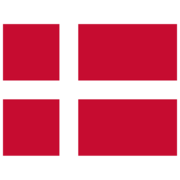E-invoicing is mandatory for business-to-government (B2G) transactions, meaning both parties must be able to process electronic invoices. While business-to-business (B2B) invoicing is not yet mandatory, it is anticipated to be implemented soon due to the upcoming "Bookkeeping Act."
In 2005, e-invoicing became mandatory for B2G transactions. On February 1, 2023, new regulations for digital reporting took effect, requiring entities to notify the Danish Authority by October 31, 2023, to register their systems for digital reporting starting January 2024.
The upcoming deadlines for digital reporting are as follows:
- January 1, 2025: Companies must submit annual financial statements using unregistered accounting systems.
- July 1, 2026 or later: Personal ownership companies with a net turnover exceeding 300,000 DKK in the last two fiscal years will also be required to comply.
The Danish government and public institutions require that invoices be submitted electronically in a standardized format for all business-to-government (B2G) transactions.
The parties involved in the process include central, regional, and local authorities responsible for the reception and processing of transactions, while economic operators and suppliers are tasked with transmitting goods or services to public entities.
Denmark operates under a Centralized CTC (Continuous Transaction Control) Model using a national infrastructure known as NemHandel, which aligns with the Peppol framework. The government plans to gradually transition from NemHandel to Peppol.
Electronic invoices can be submitted in either OIOUBL (based on UBL 2.0) or Peppol BIS 3 formats.
Invoices must be archived for a period of 5 to 10 years from the date of receipt.
While digital signatures are not required, they may enhance security.
This framework aims to streamline invoicing processes and improve efficiency in both public and private sectors while ensuring compliance with evolving regulations.


